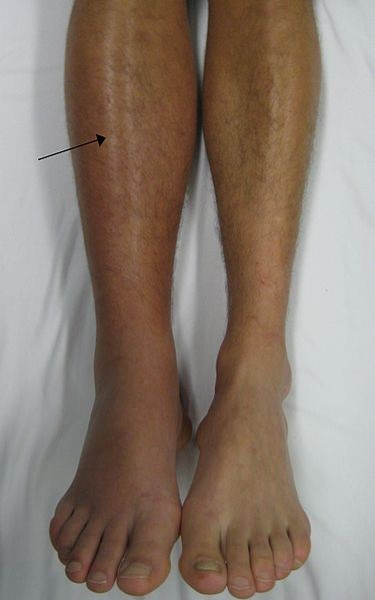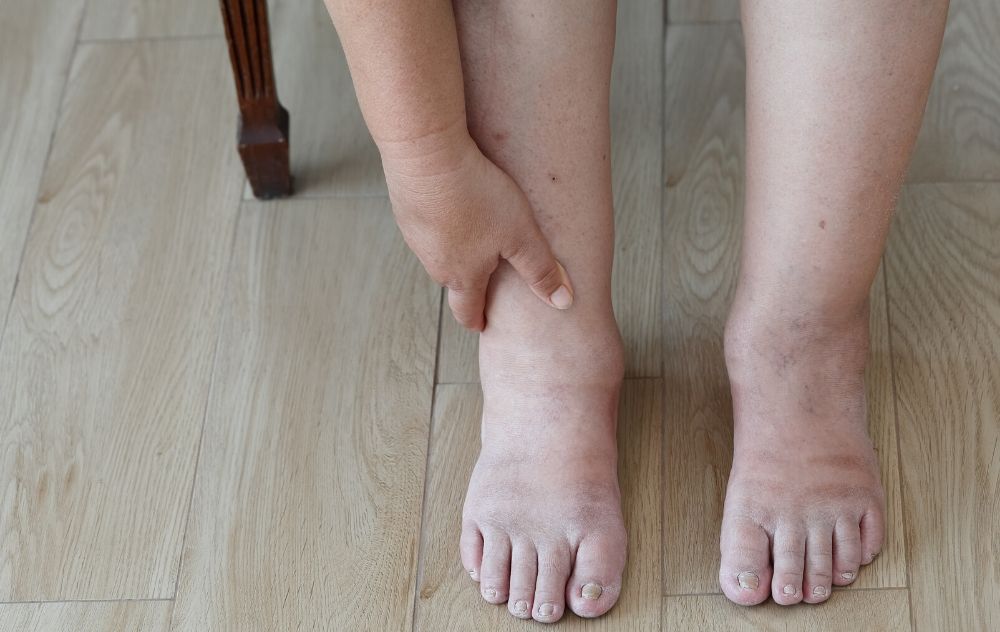Can A Blood Clot Cause Your Leg To Swell

The blood clot itself is never fatal but if it breaks free it can travel to your brain heart or lungs and can trigger a deadly cardiovascular episode.
Can a blood clot cause your leg to swell. The swelling is quite visible and your affected leg may appear to be much larger than the other leg. Risk factors include age. A swell in the legs that does not respond to ordinary treatment methods can be an indication of formed blood clots in legs.
The body cannot naturally clear the already formed clot in the affected blood vessel of the leg hence the occurrence of pain. Swelling in the leg. Serious Concern Blood clots called deep vein thrombosis can also cause your feet to swell.
A blood clot in your leg that is associated with deep vein thrombosis DVT can cause your lower leg to be sore swollen and red. The surface of the calf can feel warm to the touch if a blood clot. They can become leaky or weak.
A blood clot can cause the skin on the calf to become a reddish or bluish color. Most of these blood clots occur in blood vessels in the legs where decreased circulation is common and when this occurs in a deep vein in the leg it is known as deep vein thrombosis DVT. Migration of soreness is another sign that it is likely not a pulled muscle.
Deep vein thrombosis DVT occurs when a blood clot thrombus forms in one or more of the deep veins in your body usually in your legs. While a swelling caused by a blood clot usually does not respond to the treatment. One of the more serious causes of swelling in a foot or ankle is a blood clot.
Can your foot swell from a blood clot. Blood clots that form in the veins of the legs can stop the return flow of blood from the legs back up to the heart and cause swelling in the ankles and feet. When a clot blocks a vein that carries blood from the legs back to the heart fluid accumulates below the clot fluid builds up and your leg swells.













